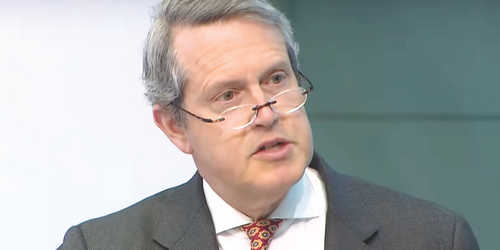The Financial Stability Board (FSB) has provided the G20 finance ministers and central bank governors with a risk assessment of stablecoins. On Oct. 13, FSB Chairman Randal K. Quarles wrote them a letter which includes a section on the “Potential financial stability issues from global stablecoins.”
The Financial Stability Board has informed the G20 finance ministers and central bank chiefs of the risks stablecoins could pose to financial stability.
Unlike crypto assets which do not pose financial stability risk at this time, stablecoins could pose a host of challenges.
Financial Stability Risk
The letter references the G20 Leaders summit in Osaka, Japan, where the leaders asked the FSB to continue its work and advise them on any multilateral responses as needed. Quarles reiterated that crypto assets “do not pose a threat to global financial stability at this point, but that they remain vigilant to existing and emerging risks.” The letter reads:
However, the introduction of ‘global stablecoins’ could pose a host of challenges to the regulatory community, not least because they have the potential to become systemically important, including through the substitution of domestic currencies.

FSB Chairman Randal K. Quarles
Challenges and Potential Benefits
Quarles proceeded to outline the challenges posed by stablecoins including “financial stability; consumer and investor protection; data privacy and protection; financial integrity including AML/CFT and know-your-customer compliance; mitigation of tax evasion; fair competition and anti-trust policy; market integrity; sound and efficient governance; cyber security and operational risks; and an appropriate legal basis.” The FSB chairman further wrote:
Global stablecoins might offer a vehicle for cross-border payments and remittances for a large number of users.
He continued: “Stablecoin projects of potentially global reach and magnitude must meet the highest regulatory standards and be subject to prudential supervision and oversight.” The FSB is currently assessing how the existing regulatory framework applies to stablecoins and whether any regulatory gaps need to be filled. The board recommends prioritizing the regulatory gap issue.
The FSB will be submitting an issues note on stablecoins to the G20 Finance Ministers and Central Bank Governors meeting in Washington, D.C. this month. The board will then submit a consultative report to the group in April 2020 and a final report in July 2020.

G7’s Evaluation and Facebook’s Libra
In his letter, the FSB chairman referred to the G7 working group’s preliminary assessment of opportunities and challenges posed by stablecoins. The group will be handing off its work on regulatory issues to the FSB, the chairman revealed. The board has also formed a working group of its own to examine the regulatory issues raised by stablecoins which have the potential to reach global scale.
The G7 finance ministers and central bank governors have been actively discussing the global impact of Facebook’s Libra. The G7 working group’s report highlights nine major risks posed by Libra-like digital currencies, the BBC reported. Amid concerns by regulators worldwide, the Libra project has been losing support from major companies such as Visa, Mastercard, Ebay, Stripe, and Paypal. According to the news outlet, the draft report says:
The G7 believes that no stablecoin project should begin operation until the legal, regulatory and oversight challenges and risks are adequately addressed.
Nonetheless, the G7 report warns that even if concerns have been addressed, stablecoin projects may not obtain regulatory approvals. “Addressing such risks is not necessarily a guarantee of regulatory approval for a stablecoin arrangement”, the report says.

